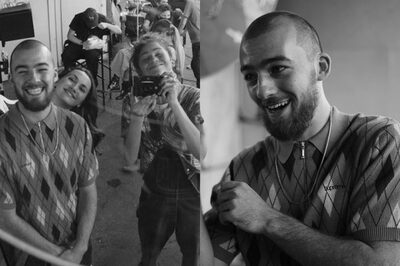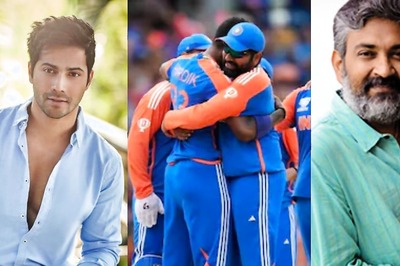
views
When I walked out of the theatre after having watched the hotly-anticipated Cannes title, Pedro Almodovar's Pain and Glory, I was a wee bit disappointed. Unlike his earlier works like Volver, All About My Mother, Tie Me Up, Tie Me Down, his latest outing looked insipid. The movie had the colours all right, bright and loud, never garish or vulgar. What, though, seemed missing was the Almodovar energy that usually lights up his cinema and takes us all on a lovely ride through the plot, which is nearly always personal.
A film critic of The Guardian quipped that Pain and Glory came from an ageing man who thought he would not be able to work anymore. So, why not we give him a concession? With this mood prevailing here at Cannes, backed by a top rating from critics, 2019 may well be the year when Almodovar gets the top prize.
Though the Spanish filmmaker has never won the Palme dÓr, but Pain and Glory could move the jury, headed by Mexican helmer Alejandro Gonzalez Inarritu.
This is of course not to say that Pain and Glory is his best work. As one writer aptly said, “It lacks both the mad energy of his early countercultural work and the ravishing melodramatic pleasures of the critical darlings from his prestige period (including All About My Mother, which was heavily favoured to win, but didn’t, in 1999)."
My favourite among his films has always been Volver, which is about death and remorse, with a brilliant opening shot showing dozens of young widows cleaning the graves of their husbands on a wind-swept morning. There is also a famous freezer scene with a dead body dumped in that has been recently copied in a Tamil movie.
Pain and Glory, meanwhile, is far less dramatic. It is the story of an ageing master, painfully reminiscing his old days of glory. And Almodovar uses his favourite actor, Antonio Banderas, to play this part. He has been the director's regular, much like Soumitra Chatterjee was to Satyajit Ray. Both Banderas and Chatterjee could be seen as their directors’ alter-egos.
Banderas is a great performer and he has been with Almodovar since the start. In fact, they both began their careers in cinema around the same time. And Banderas, like Almodovar, has been dashing and debonair. Not in Pain and Glory though, in which he sheds the popular image. He does not have his usual swagger, his devil-may-care attitude. These are set aside to portray a neurotic director bogged down by failures and physical ailments and living with the memory of his celebrated days.
Touted as his most personal and autobiographical work, Pain and Glory has some of the auteur's trademarks–bold colours, passionate embraces and references to his favourites (from Fellini to Elizabeth Tailor) all wrapped up in Alberto Iglesias' haunting score.
With Penelope Cruz (another Pedro constant) playing the director's mother in his younger days and Banderas as the director himself, the film runs through the pain and glory of a man with a megaphone. It reminded me a great deal of Guru Dutt's Kaagaz Ke Phool, where the master director walks down memory lane wistfully thinking about his grand old times.
In Pain and Glory, Banderas is Salvador Mallo, a film director who has not made anything for years and is now bogged down by aches and a tendency to choke on food. He is depressed but then he meets an old friend, Alberto, who helps him reconnect with a former star. The two had quarrelled and parted ways. Mallo finds an old script and asks the star to perform on stage. The production brings back Mallo's old pals and he finds new energy and meaning to live.
However, despite a deeply poignant plot, there was something lacking in Pain and Glory. It did not quite connect with me emotionally. And I was disappointed, all the more because it was the work of Almodovar—the man who had given a fantastically new meaning to Spanish cinema, nay world cinema.
Follow @News18Movies for more.


















Comments
0 comment